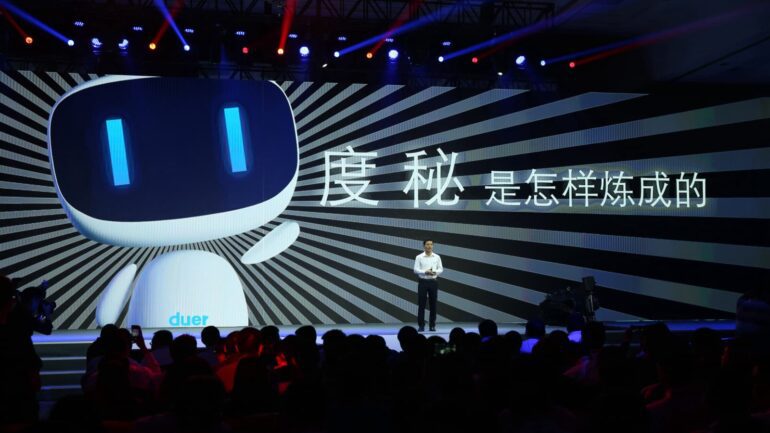TL;DR:
- Baidu’s Ernie Bot, powered by an advanced large language model (LLM), has outperformed OpenAI’s ChatGPT 3.5 and GPT 4 in key metrics.
- The comprehensive tests conducted by China Science Daily showcased Ernie 3.5’s superiority in various Chinese-language capabilities.
- Baidu’s Chief Technology Officer highlighted significant enhancements in Ernie Bot’s effectiveness, functionality, and performance, particularly in creative writing, question answering, reasoning, and code generation.
- Ernie Bot integrates plug-ins like “Baidu Search” to generate real-time and accurate information, with plans for further expansion.
- Baidu’s continuous improvements demonstrate the company’s commitment to enhancing efficiency and addressing safety concerns.
- China faces the challenge of balancing AI development support with regulations and restrictions on overseas products, requiring the establishment of sound governance frameworks.
- Baidu’s Ernie Bot has been ranked as the top alternative to ChatGPT among Chinese tech companies.
- Baidu’s integration of Ernie Bot into its products and the establishment of a venture fund reflect the company’s strategic investments in generative AI.
- Large language models like Ernie Bot are expected to drive the growth of the digital economy and its integration with the real economy.
Main AI News:
In a bold move, Baidu, the Chinese search and AI giant, has claimed that its chatbot, Ernie Bot, powered by a cutting-edge artificial intelligence-based large language model (LLM), has surpassed OpenAI’s groundbreaking ChatGPT in key metrics. This development intensifies the competition between Baidu and its US and local rivals.
Baidu’s announcement, released on Tuesday, highlights a test conducted by the state-run newspaper China Science Daily. The test demonstrated that Baidu’s latest LLM, Ernie 3.5, outperformed both ChatGPT 3.5 in comprehensive ability tests and the more advanced ChatGPT 4 in several Chinese-language capabilities.
Haifeng Wang, Baidu’s Chief Technology Officer, revealed that just three months after the beta release of Ernie Bot, which was built on Ernie 3.0, Ernie 3.5 achieved significant enhancements in effectiveness, functionality, and performance. Wang emphasized the noticeable improvements in creative writing, question answering, reasoning, and code generation, solidifying Ernie’s position as a formidable AI bot. Moreover, the latest version of Ernie Bot allows for the integration of plug-ins, expanding its features and capabilities.
One notable plug-in integrated into Ernie Bot is “Baidu Search,” which equips the bot with the ability to generate real-time and accurate information. Baidu plans to incorporate more plug-ins from both Baidu and third-party developers, further enhancing Ernie Bot’s functionality.
The claims made by Baidu align with CEO and co-founder Robin Li’s recent remarks at a conference, where he highlighted that Ernie Bot’s model performance had improved by over 50 percent since the release of version 3.0 in March. Li also emphasized a twofold increase in training performance and a remarkable 17-fold increase in inference performance, enabling faster and more cost-effective iterations and upgrades.
Efficiency is a critical factor for AI development in China, especially given the US sanctions limiting access to advanced graphics processing units necessary for training large language models. Baidu’s continuous improvement of Ernie Bot’s efficiency addresses this challenge and strengthens China’s AI capabilities.
While Baidu celebrates its technological advancements, the company also recognizes the importance of addressing safety concerns. The upgraded Ernie Foundation Model version 3.5 not only includes technical enhancements but also tackles content safety issues, aligning with the priorities set forth by Beijing.
China faces a conundrum when it comes to governing generative AI. Balancing support and funding for AI development with the implementation of regulations and restrictions on overseas products is a challenge. According to Li, establishing sound laws, regulations, institutional systems, ethics, and moral guidelines is essential to ensure the healthy development of generative AI.
Baidu’s release of Ernie Bot 3.0 in March served as China’s initial response to ChatGPT, prompting other companies, such as Alibaba Group Holding and Tencent Holdings, to introduce their own models. In June, the Xinhua Institute, a think tank affiliated with the Xinhua state news agency, conducted a test ranking Baidu’s Ernie Bot as the top alternative to ChatGPT among Chinese tech companies.
Actively integrating Ernie Bot into various products, including cloud services, Baidu has also announced a 1 billion yuan (US$139 million) venture fund to invest in Chinese generative AI start-ups. Li predicts that large language models will increasingly permeate various sectors, becoming a key driving force behind the growth of the digital economy and its integration with the real economy.
Conclusion:
Baidu’s latest achievement with Ernie Bot represents a significant milestone in the AI market. By surpassing OpenAI’s ChatGPT models, Baidu has demonstrated its technical prowess and the effectiveness of its large language model. This intensifies the competition between Baidu and its rivals, stimulating further advancements and innovation in the AI industry. Baidu’s continuous improvements and strategic investments in generative AI position the company at the forefront of AI development in China.
As large language models become increasingly integrated into various sectors, they are poised to become a driving force behind the growth of the digital economy and its convergence with the real economy. Businesses operating in the AI market should closely monitor these developments and adapt their strategies to remain competitive in this rapidly evolving landscape.

